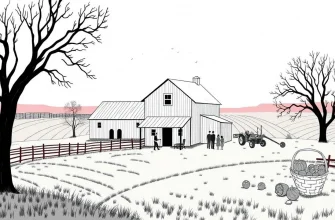Ancient Rome has always been a fertile ground for storytelling, with its rich history of political intrigue, epic battles, and larger-than-life characters. This curated list of films dives into the heart of Roman drama, offering viewers not just entertainment but a window into the complexities of one of history's most fascinating civilizations. From the rise of emperors to the fall of republics, these movies provide a dramatic portrayal of life in Ancient Rome, complete with historical accuracy, compelling narratives, and unforgettable performances.

Quo Vadis (1951)
Description: Set during the reign of Nero, this film tells the story of a Roman general who falls in love with a Christian woman, leading to a clash of faith and empire. It's a dramatic portrayal of early Christianity in Rome.
Fact: The film was one of the first to use the wide-screen process known as "Super Technirama
 Watch Now
Watch Now 
Ben-Hur (1959)
Description: A story of friendship, betrayal, and redemption set against the backdrop of Roman-occupied Judea. Judah Ben-Hur's journey from a wealthy prince to a galley slave and back to freedom is both dramatic and inspiring.
Fact: The chariot race scene took three months to film and involved 15,000 extras. The film won 11 Academy Awards, tying the record for most Oscars won by a single film.
 Watch Now
Watch Now 
Spartacus (1960)
Description: This film chronicles the life of Spartacus, the Thracian gladiator who led a major slave uprising against the Roman Republic. It's a tale of rebellion, leadership, and the fight for freedom.
Fact: Kirk Douglas, who played Spartacus, was also one of the film's producers. The famous "I am Spartacus" scene was improvised by Douglas.
 Watch Now
Watch Now 
Cleopatra (1963)
Description: This film focuses on the life of Cleopatra, the last pharaoh of Ancient Egypt, and her relationships with Julius Caesar and Mark Antony, set against the backdrop of Rome's political turmoil.
Fact: It was the most expensive film ever made at the time, with a budget of $44 million. Elizabeth Taylor's costumes alone cost over $194,
 Watch Now
Watch Now 
The Fall of the Roman Empire (1964)
Description: This epic drama explores the decline of the Roman Empire through the eyes of its last great emperor, Marcus Aurelius, and his son Commodus. It delves into the political machinations and the personal struggles of those in power.
Fact: The film was one of the most expensive of its time, with a budget of $19 million. It was shot in Spain, where a full-scale replica of the Roman Forum was built.
 Watch Now
Watch Now 
Gladiator (2000)
Description: This epic tale follows Maximus Decimus Meridius, a betrayed Roman general who becomes a gladiator to seek revenge against the corrupt emperor Commodus. The film captures the essence of Roman spectacle and the struggle for power.
Fact: Russell Crowe gained 40 pounds of muscle for his role as Maximus. The film's Colosseum scenes were shot in a specially constructed arena in Malta.
 Watch Now
Watch Now 
The Last Legion (2007)
Description: This film blends history with legend, telling the story of the last Roman emperor and his quest to reclaim his throne with the help of a legendary sword, Excalibur.
Fact: The film features a mix of historical figures and Arthurian legend, creating a unique narrative. It was shot in various locations across Italy.
 Watch Now
Watch Now 
Centurion (2010)
Description: Following the massacre of the Ninth Legion in Caledonia, a group of survivors must fight their way back to Roman territory. This film offers a gritty, survivalist take on Roman military life.
Fact: The film was shot in the Scottish Highlands, providing a stark and authentic backdrop for the story. It was inspired by the historical disappearance of the Ninth Legion.
 Watch Now
Watch Now 
The Eagle (2011)
Description: A young Roman officer sets out to recover the lost eagle standard of his father's legion, leading him into the heart of Caledonia (modern-day Scotland). It's a tale of honor, duty, and the clash of cultures.
Fact: The film is based on the novel "The Eagle of the Ninth" by Rosemary Sutcliff. The eagle standard used in the film was designed to be historically accurate.
 Watch Now
Watch Now 
Titus (1999)
Description: Based on Shakespeare's play "Titus Andronicus," this film explores themes of revenge, power, and madness in Ancient Rome, offering a modern interpretation of a classic tragedy.
Fact: The film was directed by Julie Taymor, known for her innovative stage productions. It features a mix of contemporary and classical elements in its design and setting.
 30 Days Free
30 Days Free 








